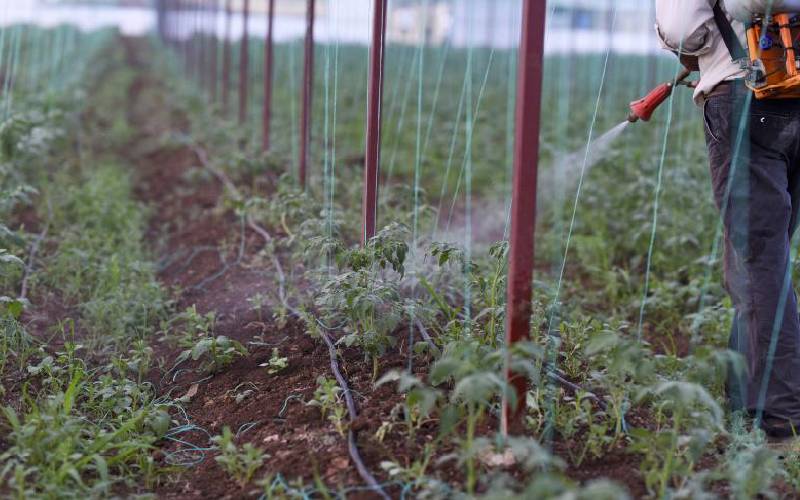×
The Standard e-Paper
Smart Minds Choose Us

Farmer spraying pesticide his crops in his greenhouse. [Standard]
Insects are important to humans and ecosystems for a variety of reasons. In agriculture, aside from the pest species, the other species are beneficial as they play roles such as pollination, nutrient cycling, soil aeration, improving soil fertility, decomposition of organic matter and natural control of pests.